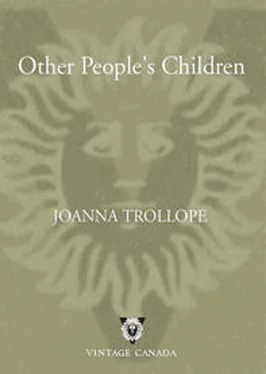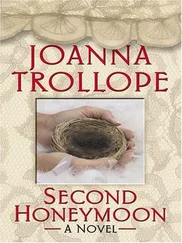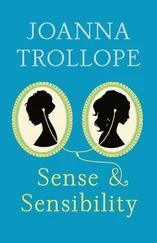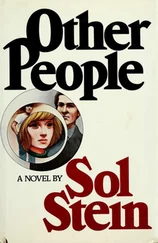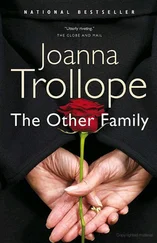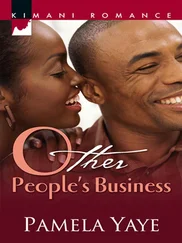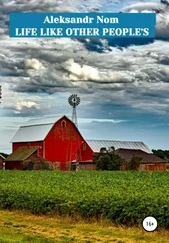‘Nice man. Good architect.’
‘Well, I’m good at this sort of thing,’ Tom had said, standing in the tiny sitting-room. ‘I’m good at making space.’
She nodded gratefully. It disconcerted her that she, who spent all her working life either subtly directing people towards decisions, or briskly making them herself, should feel so helpless in this house, as if it represented all kinds of possibilities that she doubted she was up to.
‘I’m not sure I want a house at all, you know,’ she said to Tom Carver.
‘But you want this one.’
‘I seem to—’
He was perhaps in his mid- or early fifties, a burly man with a thick head of slightly greying hair and a surprising ease and lightness of movement. He wore his clothes, she noticed, with equal ease, as if they were exactly what he had intended to wear. Elizabeth seldom felt like that. Work was fine, work was no problem because all it demanded sartorially was an authoritative but sober neatness. It was play that was the problem. She never, all her life, could quite get the hang of clothes for play.
‘I think we should knock this right through,’ Tom Carver said. ‘And give you one really good space for living in. Then you’ll have north and south light as well as room to swing an armful of cats.’ He ran his knuckles over the party wall to the room behind. ‘What do you do?’
‘I’m a civil servant.’
‘Treasury?’
She blushed, shaking her head.
‘Heritage. Mostly – libraries.’
‘Why are you blushing? Libraries are admirable.’
‘That’s the trouble.’
He smiled.
‘Shall we make this house very bohemian?’
She was laughing. She said, ‘I’d be appalled.’
‘I’m not serious,’ he said, ‘but it doesn’t do any harm to undo a few buttons. If we put the kitchen on the north side of this room, you’ll have the south side for sitting.’
‘I mustn’t sit,’ Elizabeth said. ‘I mustn’t. I must garden.’
I must learn how, she thought now, looking down at it. In the efficient flat off Draycott Avenue, there wasn’t so much as a window box, and the house plants friends brought her – she was the kind of woman, she had noticed, to whom friends did bring plants, and not bunches of flowers, armfuls of lilies or lilac – always died, mostly, she thought, because of her anxiety over them. But this garden was different. Gardens had Nature in them, not just instructions on plastic tags. Nature plainly, and however arbitrary it was, went on providing its miraculous energies and respites, so that there was some other element to gardening than just following the recipe. I suppose I’m the age for gardening, she thought. Isn’t rising forty when people start, when they realize it’s the only chance they’ll have to make living things grow and happen?
A car stopped below at the little gate and Tom Carver got out. He had a long roll of paper under his arm, the drawings he had promised to bring of her new living space, her new bathroom, her new ingenious guest bedroom made out of the old bathroom, her new patio at the back to be gouged out of the hillside and decorated with a table and chairs at which, Tom Carver promised her, she would eat breakfast in the brief morning sun. She banged on the window as he climbed the path and he looked up and waved. She went down into the narrow hall that was soon to be absorbed into the living space, and let him in.
‘Bloody cold,’ he said.
‘Is it?’
‘Much colder up here than down where I live. How are you?’
‘Fine,’ she said.
‘When I was going through my divorce,’ Tom said, ‘and people asked me how I was, I used to say, “Rock bottom, thank you,” and they’d look really offended. It’s a social obligation to be fine, isn’t it, otherwise you’re a nuisance.’
‘But I am fine,’ Elizabeth said.
He gave her a brief look.
‘If you say so.’
He went past her into the sitting-room and unrolled the drawings on the floor.
‘This house isn’t in the least regular. We always think of the Georgians as so symmetrical, but most houses in Bath are just approximate. I like it. It makes them more human somehow, those eighteenth-century builders saying to each other, “Just wallop that bit in there, Will, they’ll never notice.”’
Elizabeth knelt on the floor. The drawings were very appealing, all those orderly lines and shaded areas in faded indigo, lettered with a quiet architectural flourish.
‘Did you always want to be an architect?’
‘No. I wanted to be a doctor. My father was, and so was my grandfather, and I refused to consider it, out of pique, after my elder brother won a medical scholarship to Cambridge.’
Elizabeth ran her finger over the shaded rectangle that would be her south window seat.
‘Do you regret it?’
‘Yes.’
‘Do you think that regretting it makes you a better architect?’
He squatted on the floor beside her.
‘What a very nice question, Miss Brown.’
‘Elizabeth.’
‘Thank you. The truthful answer is that it’s made me quite a successful architect.’
‘And I,’ said Elizabeth, ‘am quite a successful civil servant.’
‘Is that a reprimand?’
Elizabeth stood up.
‘Just a little warning. Why haven’t you put the sink under the north window?’
‘Because I’ve put a door to the garden there.’
‘But I don’t want two outside doors in this room.’
Tom stood, too.
‘Then we shall think again.’
‘I’ll need space for gumboots, won’t I, and coats, and somewhere to be out of the rain when I take them off.’
Tom stooped and laid his finger on the plans.
‘There.’
‘Oh,’ she said. ‘Sorry.’
‘And there’s an outside door for all that there. This door was for the summer. To carry trays through. That sort of thing. A summer Saturday. Friends coming for a drink.’ He stopped. He straightened up and looked at her. He said, in a different voice, ‘You can’t really imagine living here, can you?’
‘No,’ she said. She put her hands in her coat pockets. ‘At least – I thought I could, when I first saw it. But perhaps that was partly seeing all the life that was going on around it. But I’m sure it will happen. Imagination has never been my strong suit.’
Tom gave the drawings on the floor a small, deft kick so that they obediently rolled themselves up again.
‘Tell you what. I’m going to take you down to my house, which at least is warm, and give you some coffee, and we’ll talk—’
‘I’m not having second thoughts—’
‘I’d like to be certain of that before I tell you how much I’ve already cost you.’
Elizabeth said, with some force, ‘I want this house.’
Tom bent and picked the roll of drawings up. He glanced at her. He was smiling.
‘I believe the first two words of that sentence,’ he said, ‘at least.’
Elizabeth sat at Tom Carver’s kitchen table. It was a long table, of old, cider-coloured wood, and it had a lot of disparate things on it – a pile of newspapers, a bowl of apples with several keys and opened letters in it as well as fruit, a clump of candlesticks, a stoppered wine bottle, a coffee mug, a torch – but they looked somehow easily intentional, as Tom’s clothes did. The kitchen was a light room, running right through the depth of the house, with French windows at one end through which Elizabeth could see the painted iron railings that presumably belonged to a staircase going down to the garden. It was the kind of kitchen you saw in showrooms or magazines, where no amount of supremely tasteful clutter could obscure the fact that every inch had been thought out, where every cupboard handle and spotlight had been considered, solemnly, before it was chosen.
Читать дальше
